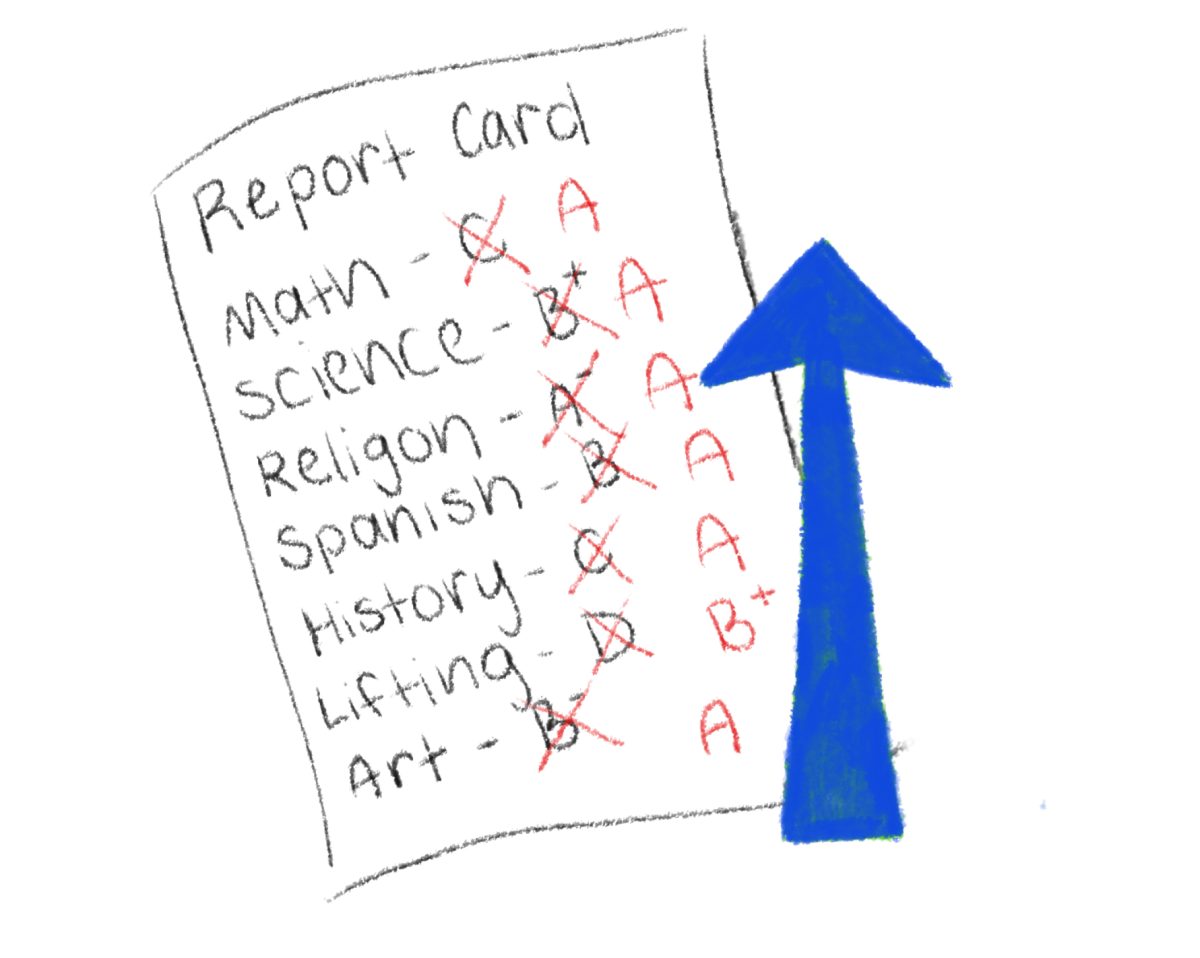To most students in high school, grades feel like determining factors of their futures. Grades and G.P.A., grade point average, matter throughout all of high school, but some courses, specifically at DePaul College Prep, may experience grade inflation.
School Counselor Pat Donlan has worked in the counseling field for 10 years. He meets students throughout all grade levels and works with them in the three domains of the American School Counseling Association: academic, career and social/emotional development.
Donlan started working at DePaul Prep four years ago, and ever since he started here he has noticed how much grades mean to the student population.
He said “I get the impression that students feel that there is some sort of indication of their future, something that isn’t always necessarily true.”
Donlan understands that sometimes students have rough moments academically and emotionally. When students have these rough moments, sometimes it can reflect on how well they do in their classes.
Teachers at DePaul Prep realize this and can often recognize the pressure of academics and the future and offer extra points of credit.
Sophia Lee, a senior at DePaul College Prep, has always had straight A’s throughout her entire high school career. Lee is in all AP classes, meaning more intense and rigorous assignments and exams.
Grades have always been an important part of Lee’s life specifically now as she pursues the competitive and challenging field of veterinary medicine.
Being such important factors of lives, students feel immense pressure from grades. Lee said, “I have always had consistently good grades, setting the bar very high. My classes have grown increasingly more demanding, time consuming and challenging as the year has progressed. I also feel additional pressure because seniors are amidst college applications and producing and maintaining grades can be very stressful.”
Although grades put an extreme amount of pressure on students, Lee recognizes that high schools do this to prepare the students for college applications and general college readiness.
With such pressure can come inconsistency across classes. Lee said, “In my more challenging AP courses, like science or math, curves are banned. But in my AP language arts classes, I receive curves for some multiple choice tests and writing assignments. Most of my teachers will not give extra credit as well, so I have not experienced any inflation there.”
Every course and teacher is different and there are varying levels of flexibility. Some teachers grade entirely on completion while others on accuracy. Grades mean something different to each teacher and to each student.
Tony Minestra, Director of College Counseling and Testing Coordinator, has worked at DePaul Prep for five years. From his experience when the college counseling departments look at grades, they are looking at an evaluation of the amount of work and effort a student has expressed over the course of the semester.
With this comes many challenging decisions for colleges. He said, “I think if you look at the landscape across the country, GPAs are very high. When GPAs are so high it is challenging for colleges to navigate application processes because so many students’ grades are difficult to discern from each other.”
At DePaul, over a third of seniors’ GPAs are over 4.0, according to Minestra. If the standard of the highest level of performance is a 4.0 — straight A’s across the board — and a third of seniors are over the number, colleges might have a difficult choice because high amount of high-achieving students based on GPA alone.
As students take different courses and expand their interests, grades and standards change, but the most important thing is that students try their best and never stop wanting to learn.







